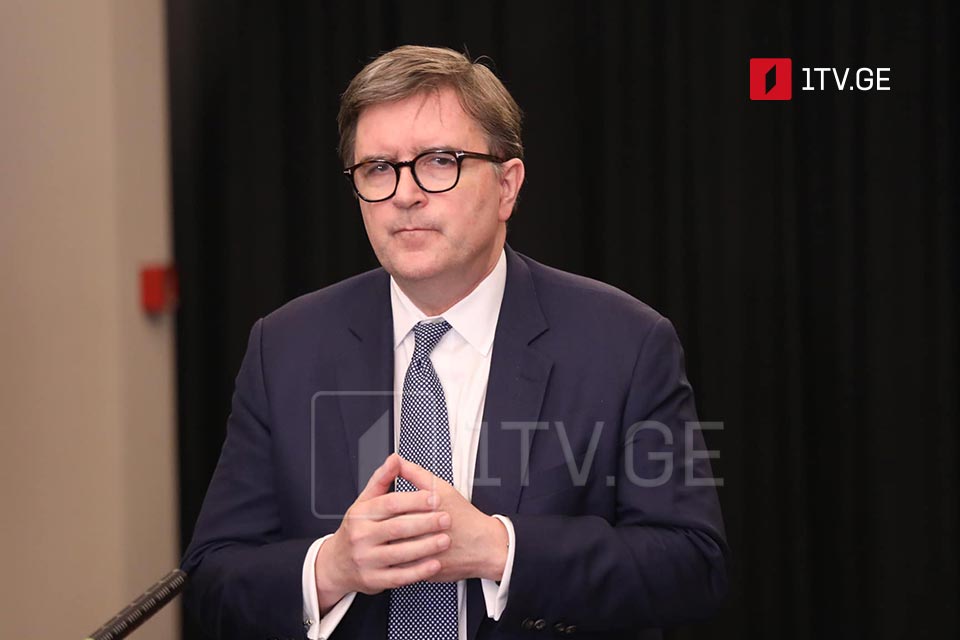Assistant Secretary: Different kinds of foreign agent laws proposed in many countries; those are very troubling; we want to avoid any stigma attached to small set of organizations
“What I’m mostly worried about is seeing that Georgia follows European transatlantic norms on these questions. There have been different kinds of foreign agent laws proposed in many countries, and those are very troubling. That’s why there was so much consternation about the initial framing of the law, and we’d hate to see the law implemented as it stands now. So before it is finally enacted, we think we need to see substantial changes. Or this, plus the rhetoric we are seeing, will lead us to question how much of the partnership remains,” James C. O’Brien, the US Assistant Secretary of State for European and Eurasian Affairs, told media pool on Tuesday.
Asked what if they capped in targeting U. S. and EU funding, would that be considered a change of the law? Or does it have to exclude civil society and media organizations that get funding from the West totally? Assistant Secretary O’Brien said: “No, I think this is going to be an ongoing conversation. What we want to avoid is any stigma attached to just a small set of organizations. There’s an EU framework that is in development on how to address, in that case, foreign funding, and in the US we have various frameworks as well. So I don’t want to dictate exactly what emerges, but we want to avoid what we’ve seen in the last week, which is this kind of public discussion of certain organizations being used by some group to do violence to property, to people. That we cannot have.”
As for the questions regarding protestors and whether changes to foreign agents’ law would be sufficient, Assistant Secretary O’Brien said: “You have to ask them.”
In response to the question regarding potential sanctions on Bidzina Ivanishvili, O’Brien noted: “He [Ivanishvili] thinks that we already have sanctions on him. And I believe that if he’s in charge of everything and this goes in the path, if we think so, then that is something we will look at very seriously.”
As for the question of whether sanctions timing will be too late for protestors, the Assistant Secretary said: “This is a matter of very soon. I’m not going to offer a prediction. This is a thing we will work on. When we do sanction people, we do it on the basis of clear evidence and a very strong legal basis. That is not something that gets done overnight.”
Asked about media reports saying that after all, he had the chance to talk to Mr. Bidzina Ivanishvili on the phone, O’Brien stated: “No, I didn’t have any phone calls today.”

